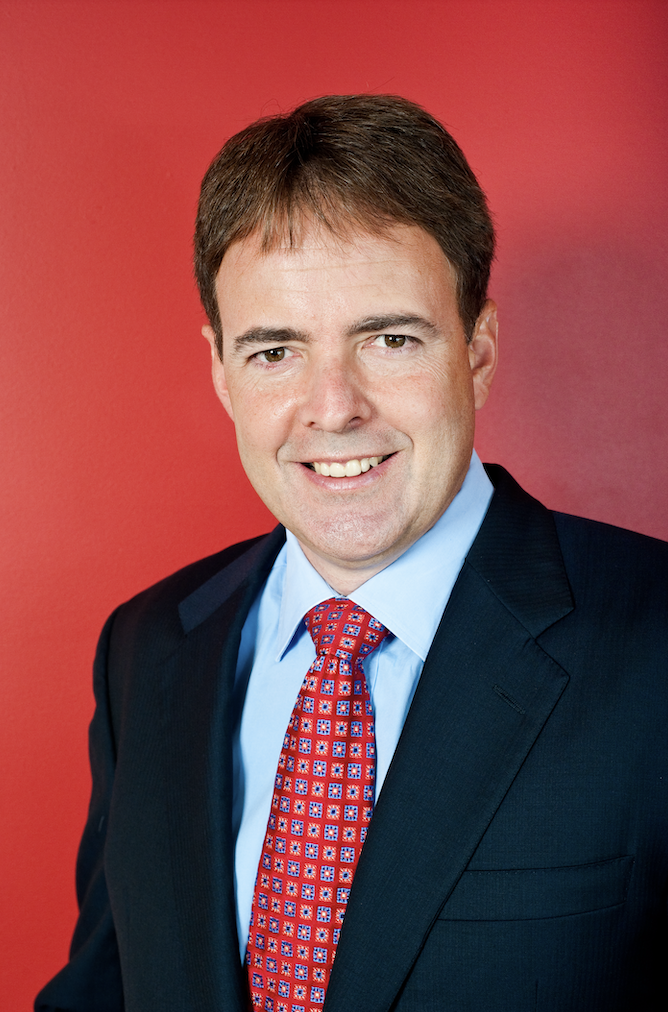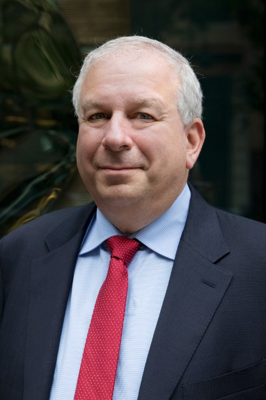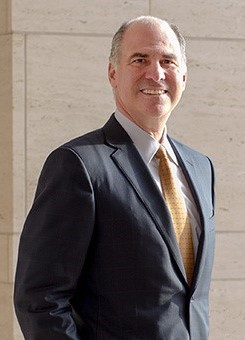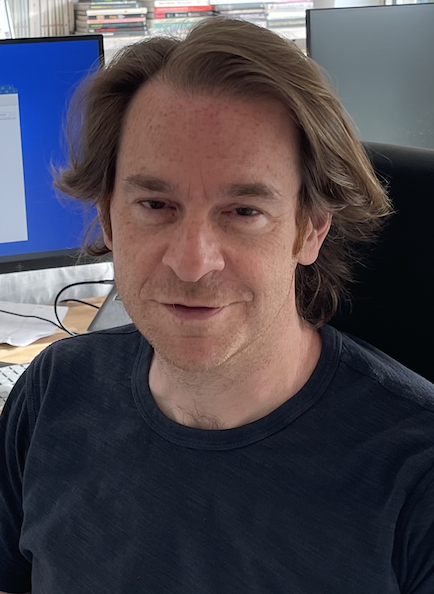Transcripts

Erik: Joining me now is Larry McDonald, the man who wrote the New York Times best selling book on the collapse of Lehman Brothers. These days, Larry writes The Bear Traps Report. Larry, it's great to have you with us. Let's start with a question I've been asking just about everyone because everybody's changing their story, which is inflation versus deflation. So many of our formerly devout deflationists have turned inflationista on us. Where do you stand? What do you see on the horizon?
Larry: Yeah, I'm in the inflation camp as well. It's, you know if you think about the previous decade, and the investment community globally. I think that, you know, we're looking at $100 trillion of bonds there below 2% in yield, and close to $17 trillion in the NASDAQ 100. And so net, net, net the entire investment community of the planet Earth is essentially in a 2010-2020 portfolio allocation. And I think what's been happening over the last like 60 days to 90 days is we've had these tremors. These growth-to-value tremors in the market, and they've been just like tremors before quake, they've been picking up with intensity. And it's clear that to me that there's just literally trillions of dollars that's misallocated, that's going to have to migrate. And right now, there's probably already a trillion that's already moved. But you know, three, four, maybe five more trillion has to move in the next six months. And so that's where, you know, the system is buckling a little bit.
So now as we look forward, we're looking at a Biden administration that is so determined. I mean, they lost the 2010 midterms by 63 seats. Obama-Biden and they're going to spend, like there's no tomorrow, especially in the third, fourth quarter of this year with the new, you know, enhanced powers of reconciliation, which you only need 50 votes. And at the same time there's just more fiscal largest around the world. And so the pressures on inflation are substantial, much more substantial than they were 10 years ago and then especially if you look at the Fed as well.
But what we were looking at is the previous decade, we had Brexit, trade wars, obviously COVID, austerity in Europe, austerity because of obviously, Greece. We had a Grexit and a Brexit. Massive austerity in Germany, you know, with incredible surpluses, and austerity in the United States. We had a sequester that took the deficit from 1.1 trillion to 500 billion over three years between 2011 to 2014 or so. So I mean, this is just, we have supply chains that were as smooth as silk. And so we have like 10 or 20 things from 2010 to 2020 that foster this incredible deflationary period is just mind boggling bull market and bonds to the point where in the fourth quarter 2019 bonds were bid without in September, October no offer. I mean just an incredible that was before COVID.

Erik: Joining me now is David Rosenberg, founder of Rosenberg Research. David, I've really been looking forward to this interview with you specifically because all of our best macro experts that used to be devout deflationists have turned inflationists. To the point that we literally have to go looking to find a deflationist left. Tell us your view, is the world changed? Is at all inflation from here?
David: Well, I mean, that certainly has become the narrative in the markets and in the media. I personally find it difficult to believe that the first global pandemic in over a century managed to unleash the inflationary forces that we couldn't generate over the course of the past four decades. That somehow it's the pandemic and the policy response to that pandemic, which has been to basically try and fill a leaky boat and preserve social stability. That we somehow now have in our hands a sustained inflationary experience to deal with. I think that we've just swung the pendulum the other direction. This time last year, we had three months in a row of negative CPI readings. We had three months in a row of declines in producer prices. Commodity prices across the board were plunging more than 20%. And if you remember, there was a day where the front month contract on WTI actually went negative.
So did we get an outright pernicious, sustainable deflationary experience? The answer is no. What we had was we had a global shock, the pandemic, and the shock created, the conditions where initially the plunge in demand more than offset the reduction in supply and that created the conditions for several months of negative pricing. We fast forward to the current environment and we have the situation now where you know, courtesy of the economy reopening, the vaccinations, all the fiscal juice that's in the system, demand has come back vigorously. And at the same time, the supply side has lagged behind. So we have this disconnect right now in the opposite direction between supply chains and demand. And it is creating I mean, nobody in their right mind can tell you that we don't have inflation right now. Inflation in the sense that we do have a temporary period where pricing is accelerating in several of the COVID related sectors. And in parts of durable consumer goods, where there are shortages.
To me, it is borderline disingenuous to say, well, the vaccinations and the re-openings are going to create the conditions for a surge in demand. But somehow the supply side will come back. The supply side will come back, all you have to do is take a look at the dramatic increase we're seeing in shipments and exports out of Korea and Taiwan. And all they really do is make semiconductors. So with a lag that's going to help ease the pressures everybody's talking about in the chip industry. And you just have to take a look at the container ships that are filled to the brim outside the ports of LA and Long Beach, which are the two busiest ports in the United States. They haven't been unloaded yet, and partly because of the lingering impacts of the COVID.
But to suggests that the supply will not come back to me is ridiculous. To start talking about labor shortages. Indeed, because you do have some people that that do fear going back to work because the pandemic is not over not even in the United States. And I say that, you know, with over 40% of the population having been fully vaccinated, you know, we will get there in probably four months if you're talking about herd immunity. But the lingering impacts of the pandemic, the variants are keeping people at the margin, reticent to going back to work. And of course, we have these extended extremely generous jobless benefits that are paying people more to stay at home than to go back to the real job.
This will all fall out of the data come September, October where I expect the supply side is going to play catch up to the demand side. And we have to keep in mind what is the story on the demand side outside of the vaccines is fiscal stimulus. But all the fiscal stimulus is just all very temporary. As we saw, with the April retail sales data, everybody blew their brains out on the spending in March. So we have a stop and go economy on our hands. The fiscal policy and the short term nature of the stimulus has just accentuated the volatility in the data. So I actually believe that come the fall, we will start to see the reopenings having a positive impact on aggregate supply at a time when we're gonna see fiscal withdrawal having a downward impact on demand. And so a lot of the inflation we're seeing today is going to reverse course I expect either by late summer or early fall.

Erik: Joining me now is Harley Bassman perhaps best known as the inventor of the MOVE index, which is basically the VIX for the bond market. Harley prepared a slide deck to accompany today's interview. Registered users will find the download link in your research roundup email, if you don't have a research roundup email, it means you're not yet registered at macrovoices.com. Just go to our homepage, macrovoices.com, click the red button that says "looking for the downloads". Harley, it's great to get you back on the program, sir, it's been way too long.
Harley: Thank you very much, great to be here.
Erik: I'm going to do this interview a little bit differently today. Because just to put my perspective on this one. For as long as I've known you, you've been a little bit different from most of our guests. You haven't had anything to sell because you basically retired from the finance industry several years ago after being very successful at an early age and are kind of enjoying life retired and continue writing about finance just because you enjoy it and find it rewarding. You've also been preoccupied for as long as I've known you with this obsession of what's going to happen someday if interest rates explode and nobody is protected.
And I know you and I have talked about this quite a bit over the years where you've expressed great frustration that the tools needed to hedge against what you think is the biggest risk and that anybody's ever, you know, seen coming in a lifetime. That may be coming in the next few years. The instruments are there, but they're only available to institutional investors. And the way I'm interpreting recent events is basically you kind of threw a tizzy fit and said, look, I'm not going to stand for this, I'm going to create a product to solve this problem. And you hooked up with our friend Mike Green. You guys both went to Simplify Asset Management in order to pull this all off. Is that right? Do I have the gist of it? And I guess we should probably dive into what is this problem that you're so worried about? That's possessed you to go off and create this new product.
Harley: You got this thing exactly right. There are options or other derivatives, other ways of getting either getting risk, or enhancing risk, reducing risk tends to be available on the listing form. And options on it are very short term one to three days, six months. There's an extraordinary risk profiles available in the longer dated option market or derivative market. And those are only available to professionals who have an ISDA contract. What we've tried to do over here is to pierce the ISDA veil, and offer what I will call civilians, non-professionals access to these products. And these kinds of products can really offer incredible risk management. Especially options because a five, or ten, or seven year option will decay at a much slower pattern than a one to three month option will. And we've devised a way with the help of the team at simplify to offer these products and we have a new one out they got launched this week.

Erik: Joining me now is Dylan Grice who's probably best known from his days at Soc Gén. But these days, he's co-founder of Calderwood Capital. Dylan, great to have you! First time on the show. Let's start with a question I've been asking just about everybody, which is boy, all of our favorite deflationists have turned into not just inflationists, but many of them secular inflationists who really say this is maybe another late 60s, early 70s, beginning of a big event. Would you agree with that? And if so, what are you doing about it?
Dylan: Well, hello, Erik and thanks for the big opening question. It's a tough one. So to kind of rewind for 10 years, to be brutally honest. I was very much in the construction inflation camp, I was very much of the opinion that we were about to see the whites of inflation's eyes. And that it was going to be the defining characteristic of financial market behavior, really, across the asset classes. It was gonna be the driver of asset returns really, over the next decade. Of course, I was I was thinking this in 2010. And, and I was writing about it a lot. And the fact is I was completely wrong, and so I'm kind of very hesitant to make the same mistake again. And I think, and I look back on it. And I look at some of my reasoning 10 years ago, when I kind of thought that, you know, inflation was about to take off, I actually kind of retrace my steps, and I re-read some of the stuff that I wrote.
And what it actually said was, so back in 2010, when I remember the prediction that I remember making that I wrote. I said in 10 years time, we'll be looking at the whites of the eyes of an inflation problem, and not an inflation not by 100 or 200 basis points, but inflation, which is becoming uncontrolled inflation, which is getting out of control. And so inflation of a kind of four to five percent rate and a rate which was accelerating, Right? So that was my prediction in 2010, for what the world in 2020 would look like. And kind of pandemic aside. 10-year breakevens were 50 basis points lower on the eve of the pandemic than they were when I was making my prediction. So I was just horribly, horribly wrong. And I think, you know, you got to kind of try and understand why you were so wrong before you try and make you know, the same prediction again. So, you know, I guess the kind of the summary answer is, I don't really know, the simple answer is, I'm not quite sure.

Erik: Joining me now is Charlie McElligott who heads up the cross asset macro strategy team for Nomura securities and is very well known for his daily newsletter which is available to institutional investors. Charlie is well known for the quality of his graphs and charts and he's prepared a slide deck for today's interview. Registered users will find the download link in your research roundup email. If you don't have a research roundup email, it means you're not registered yet. Just go to our homepage macrovoices.com, click the red button that says looking for the downloads right above Charlie's picture. Charlie, it's been way too long. Great to have you back on the program. As we get started, I want to start with a trend we're seeing which is all of our favorite deflationists have defected and become inflationists. What do you make of this trend where suddenly everybody's an inflationist?
Charlie: It's great to be back and speak with you all again. Look, this is something that I think for the last two years to three years worth of our visits, we've spoken about. Which was this decade plus regime that I call the everything duration trade, the everything duration narrative, where, you know, that post great financial crisis QE response had facilitated this kind of perpetually low yields and flat curves type of a trade. And what benefited of course then were things that had, you know, high sensitivity to low interest rates. And that was, you know, again, certainly everything from US Treasuries of course, to mega-cap tech and secular growth which is a two fold dynamic.
One, you know, secular growth stuff is stuff that doesn't need a hot cycle to grow and in the past decade, we have not operated in a hot cycle. Thus, you know, the bull flattening in interest rates and curves. And further secular growth stocks, you know, which can grow profits, grow earnings in the absence of a hot economic cycle, also then to can have their valuations justified by such, you know, impossibly low interest rates and negative real rates, things like that. So that's that kind of double whammy that facilitated what was momentum over the past, you know, 5-10 year period. Which was frankly, looked like long bond proxies, long duration, long interest rate sensitives, short cyclicals. And the short cyclical stuff was almost just a funding short, and financials and energy and basic materials, industrials, to a certain extent.
MACRO VOICES is presented for informational and entertainment purposes only. The information presented in MACRO VOICES should NOT be construed as investment advice. Always consult a licensed investment professional before making important investment decisions. The opinions expressed on MACRO VOICES are those of the participants. MACRO VOICES, its producers, and hosts Erik Townsend and Patrick Ceresna shall NOT be liable for losses resulting from investment decisions based on information or viewpoints presented on MACRO VOICES.
